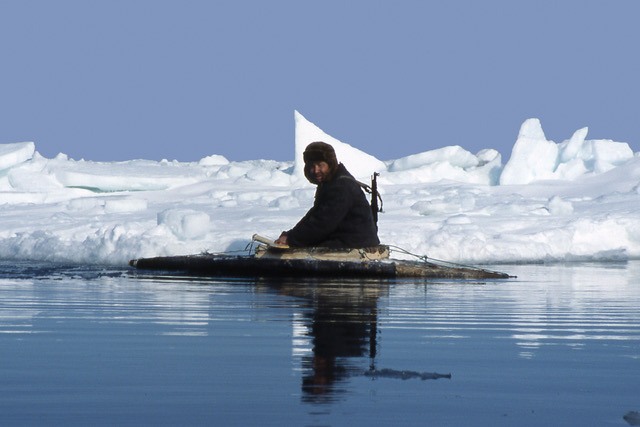Projekt
This initiative aims to make indigenous environmental knowledge accessible to a broad public in Russian civil society with regard to rapid climate change and thus promote discourse on values. Results of scientific research and documented indigenous environmental knowledge are brought together and made accessible to younger generations in particular via virtual exhibitions and new social media. With the audiovisual documentation of sustainable nature use and corresponding ritually transmitted behavior, innovative uses of traditional environmental knowledge can be developed with the help of new digital technologies and social media in order to preserve and further develop cultural heritage. The results are meant to form the basis for further future initiatives, with which young people in particular are to be involved to an even greater extent in documentation and multiplication processes of traditional knowledge – for example, through the development of participatory smartphone apps.
Partners
Institute for Humanities Research and Indigenous Studies of the North, Yakutsk
IHRISN is the successor of the Institute of Language and Culture of the Yakut Autonomous Soviet Republic, and was founded in 1935, the first research institution in Yakutia. Today IHRISN is included in the Siberian Branch of the Russian Academy of Sciences. The Institute conducts fundamental and applied research in the field of Philology, Archeology, History, Ethnology and Sociology, and has conducted a great work on the preservation of the culture and history of the peoples of the North-East of Russia.
Kamchatka Branch of the Pacific Institute of Geography (KF TIG FEB RAS), Petropavlovsk-Kamchatski
The Kamchatka Branch of the Pacific Institute of Geography FEB RAS (KF TIG FEB RAS) is a complex research institute established to organize and conduct fundamental biological, ecological and economic research in Kamchatka Krai. The object of its research is the nature of Kamchatka and its surrounding seas, which serves as a basis for development of productive resources not only of Kamchatka, but also of the whole Russian Far East. The main attention in the study and assessment of the resource potential is paid to biological resources, their biodiversity and to support the ecosystem as the main part of the region's natural wealth. Guided by the principles of the concept of sustainable development, which implies preserving the total amount of natural capital for future generations, the institute conducts fundamental and applied research in two main directions:
- studying the ecology of species, communities and biodiversity in terrestrial and marine ecosystems of the Kamchatka region;
- development of scientific foundations and practical tools for sustainable natural resource management in Kamchatka and its adjacent offshore areas.
Alfred-Wegener-Institute and Helmholtz Climate Initiative “Regional Climate Change and its Effects on People" (REKLIM)”, Bremerhaven / Potsdam
For the past several years the Helmholtz Climate Initiative “Regional Climate Change and its Effects on People (REKLIM)” and the Climate Office for Polar Regions and Sea Level Rise at the Alfred Wegener Institute have pursued knowledge transfer between the research community and society, developing a range of dialogue formats and data portals for this purpose. One of their focus areas involves the polar regions, and the Arctic in particular. The portal meeresportal.de presents the latest information and data on all aspects of sea ice, reviewed and assessed by experts. In turn, through their joint project "Gateway to the Arctic", REKLIM and the Climate Office, together with the University of Paris Saclay, have organized a series of workshops that is dedicated to transdisciplinary research on the Arctic, and promotes exchanges between young university students on the topic of the dramatically changing living conditions in the Arctic. REKLIM and the Climate Office are both based at the Alfred Wegener Institute, Helmholtz Centre for Polar and Marine Research.
 of the North
of the North






